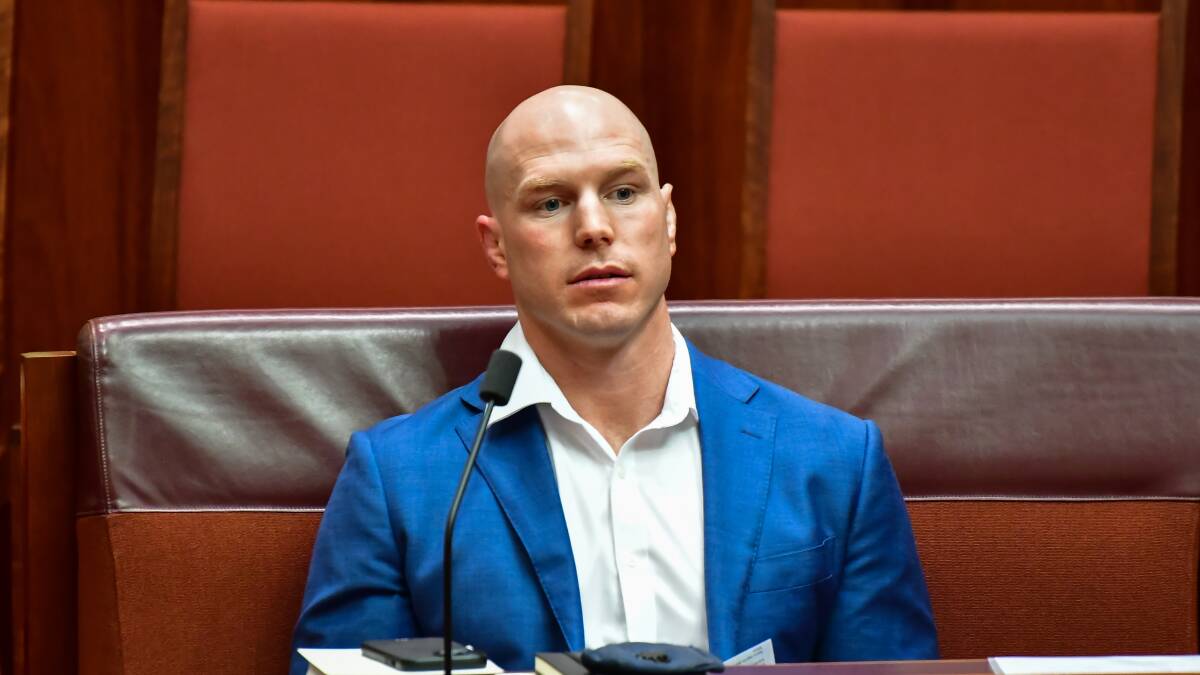
Freshly elected ACT senator David Pocock has called on the federal government to put an end to "excessive" state secrecy relating to sealed cabinet papers from two decades earlier.
Subscribe now for unlimited access.
$0/
(min cost $0)
or signup to continue reading
It comes as representatives from the National Archives of Australia argued against the full release of partially supressed Howard era cabinet papers from the year 2000 in a hearing held behind closed doors on Thursday morning.
The documents are alleged to contain information proving Australian spies were listening in on the East Timorese government from as early as 2000 - four years before an alleged cabinet room bugging under the Howard government sought to gain advantage during negotiations over lucrative oil and gas reserves.
Former independent senator Rex Patrick is taking on the federal government to overturn a secrecy exemption put in place by the former attorney-general, and kept there by Attorney-General Mark Dreyfus.
Senator Pocock defended Mr Patrick's court battle in a two-minute statement on Thursday, urging the Labor government to stop the secrecy and bring to light details of the incident.
"Regrettably, the end of the [Bernard] Collaery trial isn't the end of excessive and unjustified state secrecy in our courts and tribunals," Senator Pocock said.
"There's another secret proceeding happening in the Melbourne office of the Administrative Appeals Tribunal.
"Rex Patrick wants full disclosure of Mr Howard and Mr Downer's dirty dealings but the government - this Labor government - is happy to have a secrecy certificate applied to proceedings."
Documents filed in court by Mr Patrick earlier this year have already revealed comments allegedly made by former foreign affairs minister Alexander Downer, describing East Timor as an "open book" to Australia in 2000.
An affidavit by former Timor-Leste president Xanana Gusmao also disclosed he held suspicions Australia had been spying on him from as early as 1999 based on a warning from a senior United Nations diplomat.
Mr Gusmao, who was president between 2002 and 2007 before becoming prime minister until 2015, outlined in his affidavit, Timor-Leste "responds well to truth, dialogue and transparency", referencing the country's improved relations with Indonesia.
Mr Patrick said the Australian government should listen to Mr Gusmao.
"The time for secrecy around the Australian government's attempts to defraud the newly independent nation of Timor-Leste of their oil and gas resource has come to an end," Mr Patrick said on Wednesday, ahead of Thursday's AAT hearing.
"The Timorese want that too, and whilst there is still secrecy, there will always be an elephant in the room when officials from the two countries meet."
The spying saga was disclosed in 2013 after Timor-Leste took its concerns about the bugging operation to the Permanent Court of Arbitration in The Hague where a former Australian intelligence officer, known as Witness K, was invited by Timor-Leste to give evidence.
The office of Witness K's lawyer, and former ACT attorney-general, Bernard Collaery, was raided and he was later charged with sharing protected information in breach of the Intelligence Services Act.


